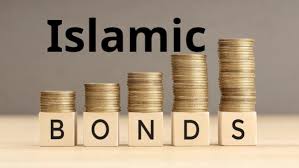In recent years, Nigeria has been exploring new and innovative ways to fund its development projects and diversify its sources of financing. One exciting avenue the government has ventured into is Islamic finance , through the introduction of Sukuk bonds —often referred to as “Sharia-compliant bonds.”
Sukuk are often called “Islamic bonds,” but they work quite differently from the traditional bonds you might be familiar with. The big difference? They follow Sharia law , which means they avoid interest (known as riba in Arabic) and focus on ethical, asset-based investing. A sukuk is more than just a financial instrument—it’s a reflection of Islamic values in action. It lets investors own a piece of something real, earn profits ethically, and avoid interest altogether. It’s all about fairness, transparency, and doing good while doing well.
Let’s break down how sukuk actually work—no finance jargon, we promise!
How Sukuk Works
Asset Ownership, Not Just Lending
When you invest in a conventional bond, you’re basically lending money in exchange for regular interest payments. With sukuk, it’s different. Instead of lending money, you’re buying a share in a real asset —like a building, a piece of equipment, or even a business project. So instead of being a lender, you become a partial owner .
Profit Sharing, Not Interest
Since interest is off the table in Islamic finance, sukuk investors earn returns through profit sharing . That profit comes from the income generated by the asset you partially own—like rent from a property or revenue from a business. So your return depends on how well the asset performs.
Getting Your Money Back
At the end of the sukuk term, the issuer (like a company or government) buys back your share at face value. That way, you get your original investment back—just like with a regular bond.
Sharia-Approved Only
The assets behind sukuk must comply with Islamic principles . That means no shady deals or investments in things like alcohol, gambling, or weapons. Everything has to be halal —permissible under Islamic law.
Now, you might be wondering: How does it fit into Nigeria’s financial landscape?
Well, you’re not alone! Whether you’re completely new to the concept or just curious about what Sukuk means for Nigeria’s economy, this blog will walk you through the basics of Islamic finance in a simple, easy-to-understand way. We’ll explain how Islamic finance works, why it matters, and how Sukuk can be used by the Nigerian government to raise funds in a way that’s ethical, inclusive, and aligned with the principles of one of the world’s major religions.
So, let’s dive in and explore how Nigeria is tapping into this global financial trend to support growth, infrastructure, and financial inclusion—for Muslims and non-Muslims alike!
Let’s Make It Real: A Quick Example
Imagine a company wants to build a hospital. Instead of taking out a loan or issuing regular bonds, they create sukuk. Investors buy those certificates, and the company uses that money to build the hospital. Now, the investors technically own part of that hospital .
As the hospital starts operating, it earns money through rent or medical services. That income is shared among the sukuk holders. Then, when the sukuk matures, the company buys back the certificates and gives the investors their initial money back.
Simple enough, right?
Sukuk vs. Regular Bonds – What’s the Difference?
Why Does Islamic Finance Matter?
Islamic finance isn’t just about avoiding interest—it’s about creating a system that’s fair, transparent, and beneficial for everyone involved. It encourages people to invest in real businesses and projects that help communities grow, while sticking to strong ethical values.
Here are some key ideas behind Islamic finance:
-
No Riba (Interest)
Charging or receiving interest is not allowed. Money should only grow through real economic activity—not just sitting in a bank account. -
Profit and Loss Sharing
Everyone shares in both the ups and downs. If the business wins, you win. If it loses, you share in that too. This keeps things balanced and fair. -
Real Risk & Reward
Financial dealings should involve real risk. Both parties should have something to gain—or lose—based on how things go. -
Tangible Assets Only
All transactions must be tied to real-world assets or services. No speculative games here—everything needs to be backed by something real. -
Ethical Investing
You can’t invest in harmful industries like alcohol, gambling, or weapons. The goal is to make money responsibly and do good in the process. -
Avoiding Uncertainty & Gambling
Contracts need to be clear and straightforward. Big risks or unclear terms? Nope. Islamic finance avoids anything that feels like gambling or unnecessary guesswork. -
Zakat – Giving Back
Islamic finance also supports social welfare through zakat , which is like a charitable donation based on your wealth. It helps support the community and reduce inequality.
In Short…
A sukuk is more than just a financial instrument—it’s a reflection of Islamic values in action. It lets investors own a piece of something real, earn profits ethically, and avoid interest altogether. It’s all about fairness, transparency, and doing good while doing well.
So whether you’re into finance or just curious about how Islamic banking works, sukuk offer a fascinating alternative to the usual way of doing business. And hey, who doesn’t love investing in something that helps build hospitals instead of just collecting interest?

